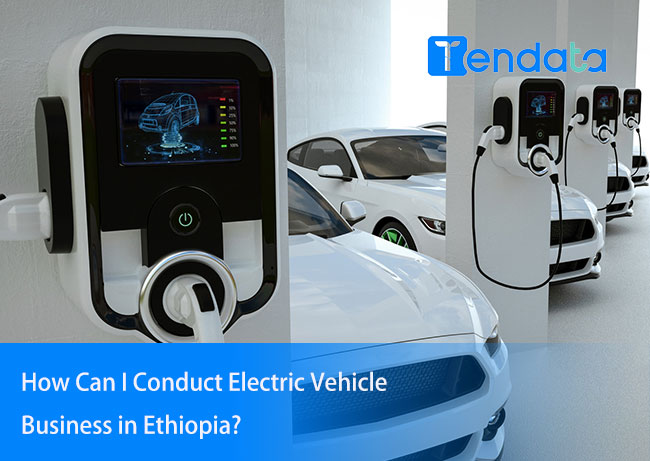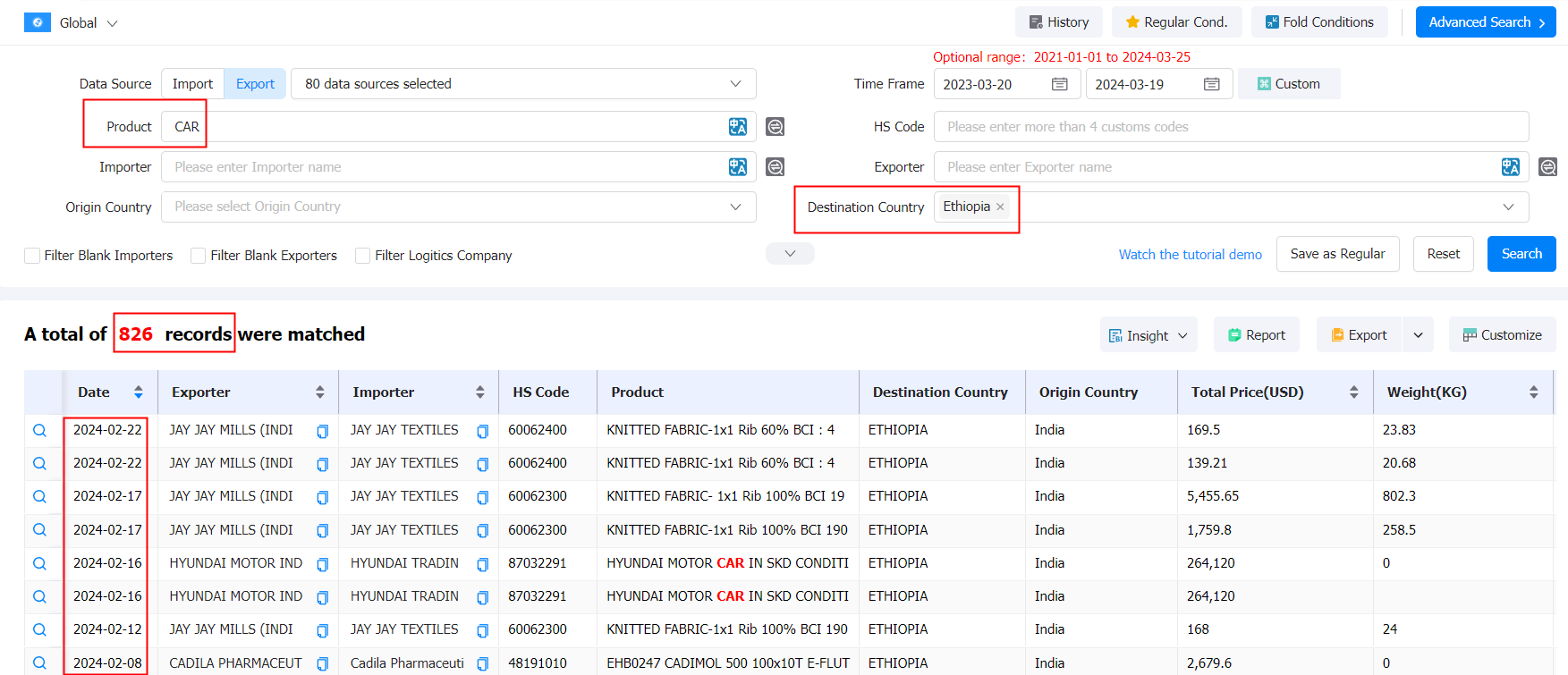 Export News
Export News
 25-03-2024
25-03-2024
The Ethiopian government has unveiled its plan to introduce nearly 500,000 electric vehicles (EVs) over a span of 10 years as part of its ongoing transition towards electric mobility.
As part of its ten-year strategic plan, the Ethiopian government initially aimed to import approximately 148,000 electric vehicles and 48,555 electric buses. According to a statement released by the Ethiopian Ministry of Transport and Logistics on Thursday evening, the initial ten-year plan was to be implemented within the first two years of the 2021-2030 period.
With the early achievement of the ten-year plan, the Ministry of Industry has revised the national ten-year strategic plan, setting a new target to import 439,000 electric vehicles during the reporting period.
The ministry stated that various incentives have been implemented to accelerate the transition of this East African nation to electric vehicles.
Bareyo Hassan, Minister of Transport and Logistics, stated that the Ethiopian government allows duty-free import of locally assembled electric vehicle components, imposes a 5% tax on partially assembled electric vehicles, and levies a 15% tax on fully assembled electric vehicles.
Hassan was quoted in the statement as saying, "The exemption of electric vehicle imports from duties is much lower compared to the taxes imposed on gasoline-powered cars, aiming to encourage the adoption of electric vehicles in the country."
As part of the ten-year strategic plan, the Ethiopian government also plans to establish a total of 2,226 charging stations nationwide, including 1,176 charging stations in the capital, Addis Ababa, and 1,050 charging stations in various regional cities.
According to incomplete statistics, Ethiopia has approximately 1.2 million vehicles, with a significant portion being over 20 years old. Most vehicles on the roads are second-hand imports, and black smoke emissions are frequently observed.
Hassan stated that the transition to electric vehicles will benefit Ethiopia economically, as it will save a significant amount of foreign exchange spent annually on fuel purchases.
According to the Ethiopian Ministry of Transport and Logistics, in 2023, this East African country spent approximately $6 billion on fuel imports, with more than half of it used for fuel-powered vehicles. Additionally, reports indicate that the pollution levels caused by these vehicles in urban centers are alarming.
The Ethiopian government's promotion of electric vehicles also encourages the private sector to seize opportunities, mainly through importing and assembling electric vehicles in the country.
Belayneh Kindie Metal Engineering Complex is one such private company that assembles electric minibusses locally using components imported from China. China's Golden Dragon company supplies components to local companies, which assemble electric minibusses and 12-meter large buses to meet the growing demand for electric vehicles in China.
Besufekad Shewaye, general manager of the Ethiopian company, stated in a recent interview with Xinhua News Agency that Ethiopia has abundant hydroelectric resources, making the company optimistic about the market prospects in the country.
Shewaye said, "Since mid-2023, we have imported completely disassembled electric vehicles and assembled 216 electric minibusses for the Ethiopian market." He noted that the company has so far sold 50% of the assembled electric minibusses to transportation service providers and government agencies.

Is Exporting Electric Vehicles to Ethiopia Profitable? How Can I Conduct Electric Vehicle Business in Ethiopia?
Before starting an electric vehicle business in Ethiopia, several factors need to be considered, including local transportation infrastructure, consumer acceptance of electric vehicles, and the competitive landscape.
When starting an electric vehicle business in Ethiopia, referencing competitors' development paths is a good way to avoid unnecessary detours. How to reference competitors' electric vehicle businesses? Here are some steps and suggestions:
1. Position Competitors: First, you need to obtain Ethiopian customs data. Tendata provides Ethiopian customs data, which includes importers, exporters, quantities, values, source countries, destinations, and more. You can easily find all importers who have traded electric vehicles in Ethiopia in the past year.
Tendata offers two ways to help you accurately position competitors:
(1) By selecting the specific country "Ethiopia" and viewing the supply chain of Ethiopian importers who have imported electric vehicles in the past year, you can find their suppliers and locate competitors.
(2) You can also choose "Exports" from all countries worldwide, and set the destination country as "Ethiopia" to determine exporters who have exported electric vehicles to Ethiopia globally.
After obtaining the list of electric vehicle exporters, compare their electric vehicle trade volumes, prices, trade trends, and supply chain situations to determine competitive opponents.

2. Conduct competitor background checks:
Tendata's various report services can help you conduct competitor research.
(1) Analyze competitors' market share: Research competitors' market share and position in the Ethiopian electric vehicle market. View the "Summarized Exporter Report" provided by Tendata, which shows the market share of all electric vehicle exporters trading with Ethiopia.

(2) Investigate competitors' products and services: Understand competitors' electric vehicle models, prices, trade volumes, etc., based on HS codes. Click on the company name and view this information on Tendata.

(3) Assess competitors' customer base: Learn about competitors' target customer groups, market positioning, and sales channels through the supply chain. In Tendata's company introduction, view competitors' supply chain situations.
(4) Contact and communicate with competitors: If possible, contact and communicate with competitors to learn about their business models, experiences, insights into the market, etc. Tendata provides contact information for competitors' executives, allowing you to easily contact competitors through social media, phone, email, etc.
Through the above methods, you can gain a more comprehensive understanding of competitors' electric vehicle businesses and develop corresponding market strategies and business plans based on relevant information to enhance your competitiveness.
Category
Leave Message for Demo Request or Questions


 T-info
T-info T-discovery
T-discovery

 My
Tendata
My
Tendata Market Analysis
Market Analysis Customer
Development
Customer
Development Competitor
Monitoring
Competitor
Monitoring Customer Relationship
Customer Relationship





































































































































